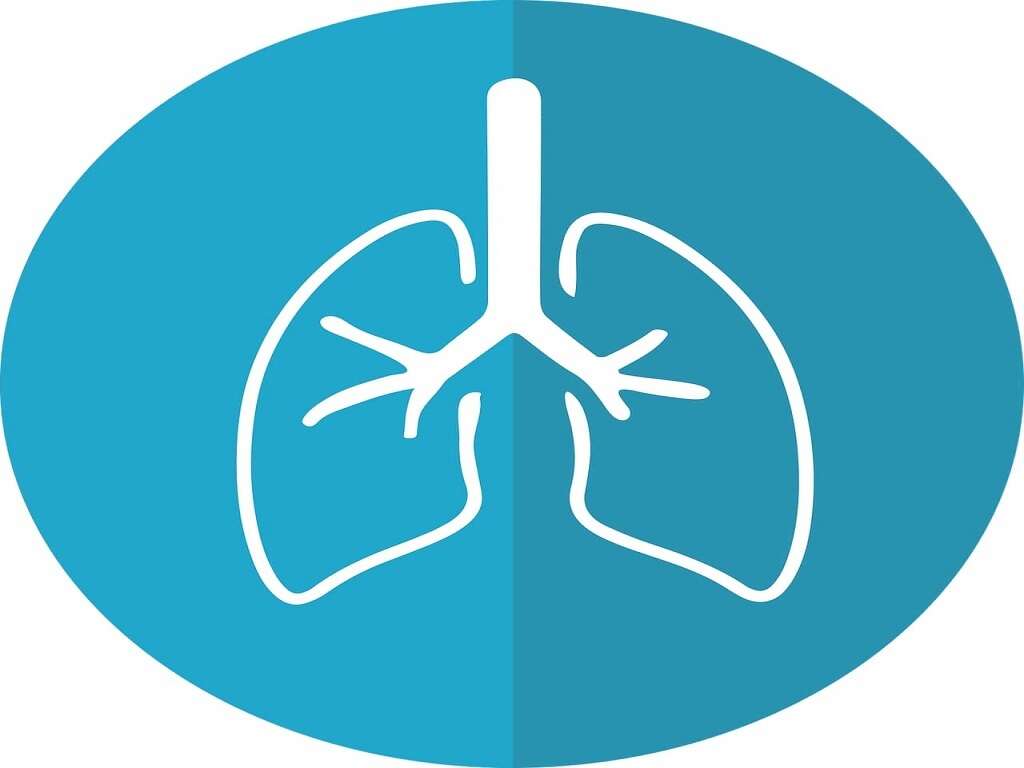10 Aspiration Pneumonia Symptoms
Many people have experienced food or water going down the wrong pipe. While this is usually harmless, sometimes inhaled food, water, vomit or smoke can cause an infection in the lungs. This leads to a condition called aspiration pneumonia.1‘Aspiration Pneumonia.’ MedlinePlus, medlineplus.gov/ency/article/000121.htm
People who are very young, elderly or have a disability that impairs swallowing are particularly vulnerable. Some mild cases of aspiration pneumonia can be managed at home with rest and medication, but others require hospitalization. Aspiration pneumonia can quickly become life-threatening, so it's important to watch for signs of advanced illness.2‘Aspiration Pneumonia.’ Patient Info, patient.info/chest-lungs/chest-infection/aspiration-pneumonia

High Fever
Aspiration pneumonia is sometimes described as feeling like a particularly nasty flu. A high fever is an early sign that something is wrong. People might shiver, sweat excessively or feel cold. There may be other flu-like symptoms, such as muscle aches, headaches and fatigue. Nausea and vomiting may also occur.2‘Aspiration Pneumonia.’ Patient Info, patient.info/chest-lungs/chest-infection/aspiration-pneumonia
A high temperature alone is a reason to check in with a doctor. Fevers can be symptoms of many infections, and catching aspiration pneumonia early means a better chance of recovery.3‘Pneumonia.’ Nhs.uk, 23 Oct. 2017, www.nhs.uk/conditions/pneumonia Severe infections can damage the lungs or lead to death.1‘Aspiration Pneumonia.’ MedlinePlus, medlineplus.gov/ency/article/000121.htm

Cough
A key feature of aspiration pneumonia is a persistent cough as the body attempts to clear the lungs. This cough could be dry, and it could also involve thick yellow or green mucus, especially as the infection progresses. Lines of red in the mucus are concerning, as they could indicate blood.
As coughing up blood is a sign of serious infection or injury, individuals who experience this symptom should go to the hospital as soon as possible.3‘Pneumonia.’ Nhs.uk, 23 Oct. 2017, www.nhs.uk/conditions/pneumonia

Loss of Appetite
A person with aspiration pneumonia may be reluctant to eat. This could be due to nausea or a general lack of interest in food.
It's important that the person remains hydrated by drinking lots of water or clear fluids with added electrolytes. If a person is unable to eat for days, can't drink or struggles to swallow food and water, they may need an IV or feeding tube to stay nourished and hydrated.3‘Pneumonia.’ Nhs.uk, 23 Oct. 2017, www.nhs.uk/conditions/pneumonia

Shortness of Breath
A person with aspiration pneumonia may feel out of breath, even while resting. They may wheeze between coughing and struggle to take deep breaths.1‘Aspiration Pneumonia.’ MedlinePlus, medlineplus.gov/ency/article/000121.htm When they do breathe, it could be faster or more shallow than usual.
Difficulty breathing is a symptom to watch carefully. While mild cases of aspiration pneumonia commonly come with breathlessness, people should call an ambulance if they or a loved one are struggling to breathe.3‘Pneumonia.’ Nhs.uk, 23 Oct. 2017, www.nhs.uk/conditions/pneumonia

Chest Pain
Chest pain is common with aspiration pneumonia and can be helpful in diagnosing it. The pain that comes with pneumonia frequently gets worse when a person coughs or breathes in deeply.
A doctor determining whether a person has aspiration pneumonia may ask the individual to breathe deeply and monitor for coughing or increased pain. They may also use a stethoscope to listen to the lungs. Crackly, muffled breathing is common in people with pneumonia.2‘Aspiration Pneumonia.’ Patient Info, patient.info/chest-lungs/chest-infection/aspiration-pneumonia

Bad Breath
Bacteria causing pneumonia can release an unpleasant smell. The phlegm or mucus a person with aspiration pneumonia coughs up may have traces of bacteria. Because of this, a person's breath or mucus may have a foul odor.
Bad breath without a discernible cause can be a sign of many issues, and although bad breath with no other symptoms is unlikely to be pneumonia, it could still be worth discussing with a doctor.1‘Aspiration Pneumonia.’ MedlinePlus, medlineplus.gov/ency/article/000121.htm

Rapid Pulse
Someone with aspiration pneumonia may notice that their heart is beating faster than usual. This, along with faster breathing, can sometimes happen as the body attempts to compensate for the lack of oxygen.
Any changes in pulse should be reported to a doctor as soon as possible. Some individuals who are concerned about their heartbeat may not be sure if it's an emergency. However, it's better to go to urgent care or an emergency room, rather than waiting for the symptoms to get worse.2‘Aspiration Pneumonia.’ Patient Info, patient.info/chest-lungs/chest-infection/aspiration-pneumonia

Confusion and Dizziness
As aspiration pneumonia gets more serious and people are not able to getting enough air to their brains, they may begin to act confused or become dizzy. They may not understand where they are or what's happening around them.
Older people with pneumonia are particularly vulnerable to disorientation. If a person suddenly begins to have slurred speech, loses their coordination or becomes confused, they should see a doctor immediately.3‘Pneumonia.’ Nhs.uk, 23 Oct. 2017, www.nhs.uk/conditions/pneumonia

Collapse or Fainting
If the loss of oxygen becomes severe enough, a person could lose consciousness. Even a single instance of fainting can be serious and a sign that the person needs emergency care.
Loss of consciousness could be a sign that the person may have advanced aspiration pneumonia or even a secondary infection. Sepsis, a condition where an infection in the body reaches the bloodstream, can be caused by pneumonia and quickly become deadly.3‘Pneumonia.’ Nhs.uk, 23 Oct. 2017, www.nhs.uk/conditions/pneumonia

Blue Tinged Skin or Lips
As a person with aspiration pneumonia becomes seriously ill, their extremities may turn blue from the lack of air.2‘Aspiration Pneumonia.’ Patient Info, patient.info/chest-lungs/chest-infection/aspiration-pneumonia
The blue tint can show up on the fingertips, face or mouth. It may be easiest to see on the lips, especially for people with dark skin. If someone's lips are blue, they should go directly to a hospital. Doctors can help manage pneumonia with antibiotics and supplemental oxygen.3‘Pneumonia.’ Nhs.uk, 23 Oct. 2017, www.nhs.uk/conditions/pneumonia











